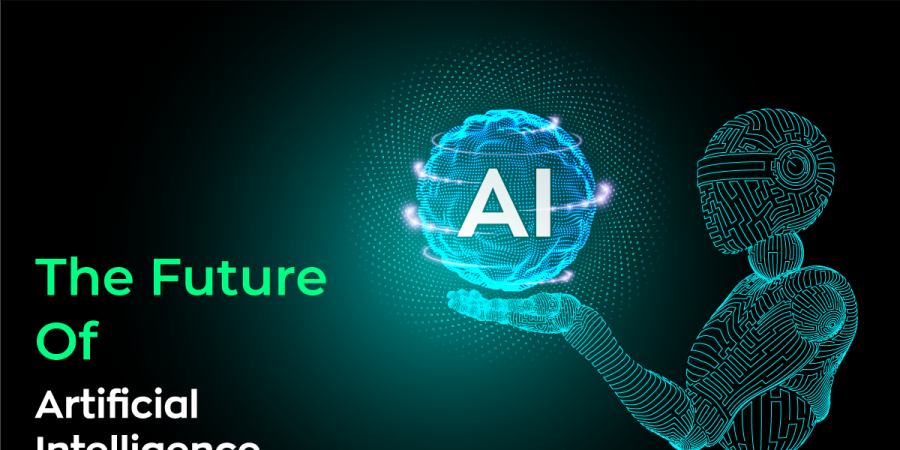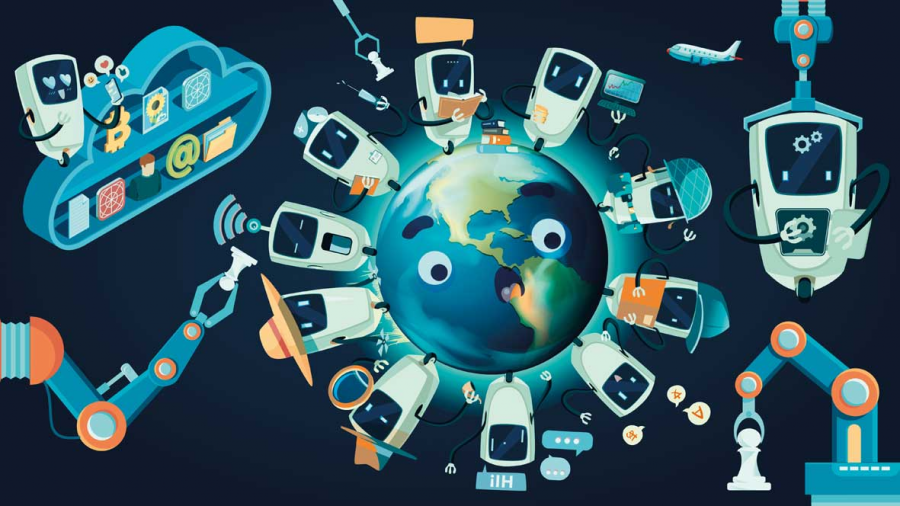

Artificial Intelligence (AI) refers to the capacity of machines to execute cognitive tasks typically linked with human minds, including perception, learning, reasoning, problem-solving, language processing, and even creative expression.
Artificial intelligence (AI) is poised for a promising future, yet it encounters various challenges. As technology advances, AI is expected to become more widespread, transforming industries such as healthcare, finance, Education, Militаry and Сyberseсurity , Advertising and transportation. The labor market will undergo changes due to automation driven by AI, leading to the need for new roles and competencies.

The Advancement of Artificial Intelligence
Before exploring the future of AI, it is crucial to understand what Artificial Intelligence is and its current status. AI is defined as the ability of machines or computer-controlled robots to perform tasks associated with intelligence. As a result, AI is a branch of computer science aimed at creating intelligent machines that can replicate human behavior.
AI can be categorized into three groups based on its capabilities:
1. Narrow AI: Capable of intelligently completing specific tasks, AI is currently in a limited stage.
2. General AI: Artificial General Intelligence, or AGI, refers to machines that can mimic human intelligence.
3. Super AI: Super AI pertains to self-aware AI with cognitive capacities superior to humans. It is a level at which machines with cognitive abilities can perform any task that a human can.
The Impact of AI
The impact of artificial intelligence can revolutionize our workplaces, leading to increased productivity and efficiency. By automating tedious or risky tasks, AI allows human workers to focus on more creative and empathetic responsibilities. This shift can result in employees being happier and more fulfilled in their roles.
Artificial intelligence also has the potential to transform the healthcare industry through improved monitoring and diagnostics. By enhancing the functioning of medical facilities, AI can lower operational expenses and generate cost savings. Additionally, the ability to create personalized treatment plans and access data from multiple sources can bring about significant advancements in patient care.
In nearly every industry, the future of humanity is being shaped by ongoing advancements in artificial intelligence. AI has already become the primary catalyst for emerging technologies such as big data, robotics, and IoT. Moreover, the introduction of generative AI has opened up new avenues and increased the appeal of AI even further.
Based on a recent survey conducted by IBM in 2023, it was found that 42 percent of large-scale businesses have successfully integrated AI into their operations. Additionally, 40 percent of these organizations are actively considering the implementation of AI for their own purposes. Furthermore, 38 percent of companies have already incorporated generative AI into their workflows, while an additional 42 percent are contemplating doing the same.
Additional research is required in order for artificial intelligence (AI) to attain sophisticated reasoning, creativity, and social skills. As AI progresses, policymakers must confront ethical considerations regarding the potential risks and advantages to ensure that these influential technologies serve the betterment of humanity.
